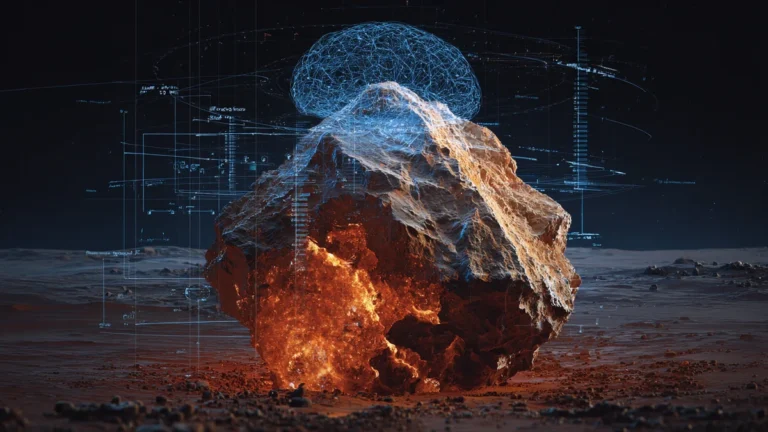
BitLocker Bug | Your Data at RISK?
Okay, so you’ve probably heard about the BitLocker bug doing the rounds. But let’s be honest, tech news can sound like a foreign language. What is BitLocker, and why should someone in India, possibly you, care about it? Here’s the thing: BitLocker is Microsoft’s built-in encryption tool, designed to protect your data. It’s like putting a super-strong lock on your digital valuables – your photos, documents, everything. Now, imagine that lock has a flaw… that’s essentially what this bug is.
This isn’t just some abstract, tech-world problem. It directly impacts anyone using Windows who relies on BitLocker to keep their sensitive information safe. Think about it: banking details, personal documents, business secrets – all potentially vulnerable. We’ll break down why this is a big deal, how it affects you, and what you can do about it. Consider this your no-nonsense guide to understanding and mitigating the BitLocker vulnerability.
Decoding the BitLocker Fiasco
So, what’s the deal with this BitLocker bypass? Essentially, researchers discovered a way to circumvent BitLocker encryption in certain scenarios. Now, I’m not going to bore you with the technical jargon (unless you really want me to!), but here’s the gist: Under specific conditions, an attacker could potentially gain access to the encrypted data on your device, even without the password. Scary, right?
The vulnerability primarily affects devices where BitLocker is configured in a specific way – often the default setup. That is using a bootable Windows installation media or accessing the device physically. This isn’t some theoretical threat; it’s a real, exploitable flaw. And while Microsoft has released patches, the real issue is ensuring everyone updates their systems promptly. We’ll discuss BitLocker patch management later.
Is Your Data Really at Risk?
Let’s be real – headlines often scream doom and gloom. So, is this a full-blown crisis? Well, it depends. The level of risk depends on your specific setup and how you use your device. If you’re rocking the default BitLocker configuration, you’re potentially more vulnerable. If you’ve customized your settings and implemented additional security measures, you’re probably in a better spot. A common mistake I see people make is assuming that since they have BitLocker enabled, they’re automatically 100% safe. This isn’t the case; you must ensure your system is up-to-date and your settings are optimal.
It’s like this: having a lock on your door is good, but if the lock is faulty or if someone knows how to pick it, it doesn’t offer much protection. That’s why staying informed and taking proactive steps is crucial. The implications of this bug are widespread, affecting everything from personal privacy to corporate data security.
How to Fortify Your Windows Security
Alright, enough with the doom and gloom. Let’s talk about solutions. Here’s a step-by-step guide to bolstering your Windows security and mitigating the risk posed by the BitLocker vulnerability:
- Update, Update, Update: This is non-negotiable. Install the latest Windows updates as soon as they’re available. Microsoft has released patches specifically addressing this bug, and keeping your system current is the first line of defense.
- Review Your BitLocker Settings: Take a peek under the hood. Make sure you understand how BitLocker is configured on your device. If you’re not sure how, there are plenty of resources online, or consult a tech-savvy friend.
- Enable Multi-Factor Authentication (MFA): This adds an extra layer of security. Even if someone bypasses BitLocker, they’ll still need a second factor (like a code from your phone) to access your data.
- Physical Security Matters: Don’t leave your device unattended in public places. A physical attack is still a viable way to exploit this vulnerability.
- Backup Your Data: This is always good practice, regardless of the BitLocker bug. In case something goes wrong, you’ll have a copy of your data safe and sound.
These steps might seem basic, but they’re incredibly effective. And remember, security is a process, not a product. You need to stay vigilant and adapt to emerging threats. Regular security audits are a necessity.
Also, be sure to check out these BitLocker Bug Fix tips at BitLocker Bug Fix .
The Bigger Picture: Why Security Matters
This whole BitLocker security flaw situation highlights a critical point: security is never a given. It’s an ongoing battle against ever-evolving threats. As technology advances, so do the techniques used by attackers. Staying informed, proactive, and adaptable is essential. The one thing you absolutely must double-check on your systems is that you have the latest security updates.
What fascinates me is how something as seemingly technical as encryption can have such a profound impact on our everyday lives. It’s a reminder that we all need to be more aware of the security risks we face and take steps to protect ourselves. Whether it’s your personal data or your company’s sensitive information, the consequences of a security breach can be devastating.
FAQ
What exactly is BitLocker?
BitLocker is a full disk encryption feature included with Microsoft Windows. It’s designed to protect data by providing encryption for entire volumes.
How can I check if BitLocker is enabled on my system?
Go to Control Panel, then click on “BitLocker Drive Encryption.” Here, you’ll see the status of BitLocker on your drives.
What if I forgot my BitLocker recovery key?
If you’ve forgotten your recovery key, you might be in trouble. Hopefully, you saved it to your Microsoft account, a USB drive, or printed it out. If not, data recovery can be very difficult.
Where can I find the latest updates for Windows?
Go to Settings, then click on “Update & Security,” and finally, click “Check for updates.” Windows will automatically download and install any available updates.
What should I do if I suspect my system has been compromised?
Immediately disconnect from the internet, run a full system scan with your antivirus software, and contact a security professional for assistance.
So, there you have it. The BitLocker flaw isn’t just some tech blip; it’s a reminder to be vigilant about your digital security. Stay informed, stay updated, and stay safe!







